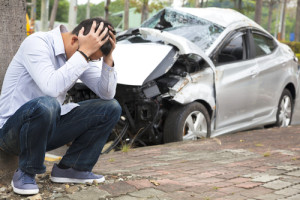July 24, 2014
 The legal system, particularly the portion of the system related to injury law, is immersed in gross misperceptions. Insurance companies like to leave the impression that most accident victims who file lawsuits seeking compensation for injuries are pursuing “frivolous lawsuits” because the accident victim is either not injured or the accused wrongdoer has done nothing which would justify the lawsuit. In fact, the actual truth is very different. I will discuss one of those fallacies below.
The legal system, particularly the portion of the system related to injury law, is immersed in gross misperceptions. Insurance companies like to leave the impression that most accident victims who file lawsuits seeking compensation for injuries are pursuing “frivolous lawsuits” because the accident victim is either not injured or the accused wrongdoer has done nothing which would justify the lawsuit. In fact, the actual truth is very different. I will discuss one of those fallacies below.
Many people believe that if somebody is hurt in an accident, he is entitled compensation; all the injured person needs is an aggressive attorney to collect their money. This is not true.
Except for on-the-job injuries, accident victims are only entitled to compensation if they can prove their injuries were caused by someone else’s wrongdoing. And, that wrongdoing has to rise to the level of negligent. Consequently, only a small portion of accident victims are actually entitled to be compensated for the injuries they sustained.
If I drive my motorcycle too fast and run off the road, that is my fault and I am responsible for the damages.
If I fall down and break my hip on my icy sidewalk, that is my fault and I am responsible for the medical expenses.
If I fly my airplane into bad weather, which I’m not trained for and I crash, that is my fault and my survivors must suffer the consequences.
However, if as I am driving down the road within the speed limit and a negligent driver who is speeding loses control and causes me to run off the road while I am avoiding his vehicle, I am entitled to recover from the negligent driver for the damages I suffer.
If I am walking on a supermarket’s sidewalk, which has not been maintained and I fall breaking my hip, I at least have a good argument that the land owner was negligent and it should be responsible for my damages.
If I am a passenger on a commercial aircraft and that company’s management places an inexperienced pilot in the cockpit who crashes because he flew into bad weather, then my survivors are entitled to be compensated for my death.
In each of these circumstances, the injured person is only entitled to be compensated if his damages result from irresponsibility of another person. When the injured person is the irresponsible person who causes the accident, he is not entitled to receive compensation.
One exception to the rule that “irresponsible accident victims are not entitled compensation” is found in workplace injuries. A worker injured on the job, through his own fault, is still entitled to have medical expenses and time loss benefits paid by his employer’s insurance company. The workers own fault, except under certain circumstances, is not a factor in determining whether workers compensation benefits are paid.
A major distinction between personal injury cases and workers compensation cases is that fault must be established in a personal injury case before an accident victim can be compensated while an injured worker can receive workers compensation benefits from an on-the-job injury even if he caused his own injuries.
